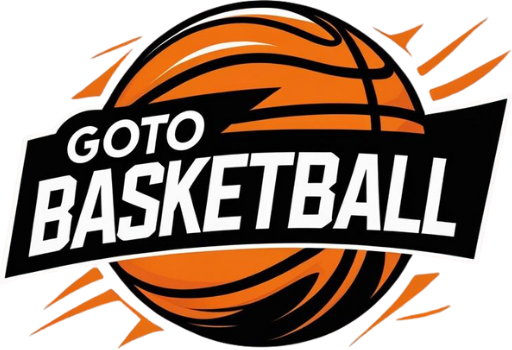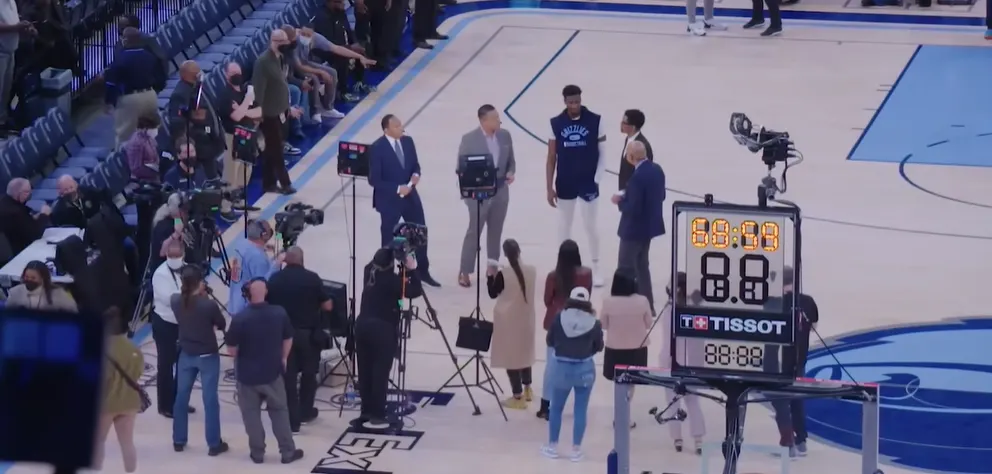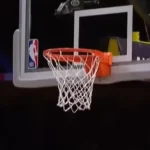The integrity of college basketball is facing a significant challenge as the NCAA’s enforcement team reveals a major sports betting scandal involving 13 former men’s basketball players from six different institutions. These allegations, ranging from betting on and against their own teams to attempting to manipulate game outcomes, underscore a growing crisis fueled by the expansion of legalized sports gambling.
- The Allegations Unveiled: A Deep Breach of Trust
- A Broad Investigation Across Six Universities
- The Elephant in the Room: Legalized Sports Betting
- NCAA’s Multi-Front Defense: Detection, Education, and Prevention
- Strict Rules and Stiff Penalties
- The Road Ahead: Evolving Regulations
- Protecting the Game’s Integrity
The Allegations Unveiled: A Deep Breach of Trust
The NCAA is actively investigating 13 former athletes accused of serious violations, some of whom have reportedly refused to cooperate with the ongoing inquiry. The alleged behaviors paint a troubling picture:
- Betting on their own teams: A direct conflict of interest, potentially undermining performance.
- Betting against their own teams: A shocking betrayal of trust and sportsmanship.
- Sharing inside information: Providing confidential data to third parties for betting purposes.
- Attempting to manipulate game outcomes: The most severe charge, striking at the heart of fair play.
These aren’t isolated incidents. The Committee on Infractions has already concluded three similar cases, finding three other players guilty of betting and game-fixing, highlighting a pattern that has left many disheartened.
A Broad Investigation Across Six Universities
The ongoing cases that are still in progress are of former athletes at a wide range of schools, with Eastern Michigan, Temple, Arizona State, New Orleans, North Carolina A&T, and Mississippi Valley. Although these schools have been much talked about in the media releases, the NCAA clarifies that the investigation it is undertaking is actually on individual athletes. More importantly, no wrongdoing is charged to the schools themselves or to their staff in these particular cases, and the NCAA is not trying to punish the institutions.
The NCAA has chosen to publish this information at this point, recognizing that it is as common as street air. The identities of the individual players will not be disclosed until the conclusion of each case, and it is pointed out that all the persons involved are at their previous universities at present.
The Elephant in the Room: Legalized Sports Betting
NCAA President Charlie Baker has been very vocal concerning the changing landscape. He said that the NCAA oversees more than 22,000 competitions annually and the vigorous pursuit of competition integrity issues like these, applauding his staff and the collaboration of member universities.
Baker makes a direct reference to legal sports betting proliferation as a major contributor to the rise in the chances of athletes taking part in the banned activities. Although he agrees with the fact that legalized gambling is here to stay, he wants the regulators and gaming companies to be more responsible. His suggestions are:
Cutting down on prop bets: These very specific, high-stakes bets, which frequently target the performance of a single player, are considered to be especially alluring and hazardous to the athletes.
Providing sports leagues with a seat at the policy table: Making sure that the people the most involved with the games get a voice in the rules that govern betting on them.
NCAA’s Multi-Front Defense: Detection, Education, and Prevention
The NCAA’s proactive approach to safeguarding competition integrity is multifaceted. The current scandal initially came to light through their extensive integrity monitoring program, which flagged “unusual betting patterns” around certain regular-season games. Subsequent investigations uncovered concrete evidence, including digital trails left by text messages and direct messages on social media.
Beyond detection, the NCAA is employing a comprehensive strategy to combat the betting problem:
- Enhanced Monitoring: Continuously scrutinizing games for suspicious activity.
- Advocating for Betting Limits: Pushing for restrictions on risky wagers.
- Athlete Protection: Implementing measures to shield student-athletes from potential harassment or pressure from angry bettors.
- Streamlined Investigations: Working to make the inquiry process quicker and more transparent.
Education is also a cornerstone of their strategy. In March, the NCAA expanded its partnership with EPIC Global Solutions, providing free gambling harm education sessions to member schools. Since January 2022, this initiative has reached over 100,000 student-athletes, coaches, and administrators, marking it as the largest program of its kind globally. Furthermore, the “Draw the Line” campaign, launched last March, aims to educate student-athletes and promote responsible gambling for everyone involved in college sports, offering toolkits for local prevention efforts.
Strict Rules and Stiff Penalties
The NCAA’s current rules are unequivocal: student-athletes, school staff, and anyone affiliated with the NCAA are prohibited from betting on any professional or college sports that have NCAA championships.
While reinstatement guidelines for players caught betting were adjusted last year to offer more support for those with problematic gambling behaviors, one rule remains absolute: a student-athlete who bets on their own team faces permanent loss of all remaining college eligibility. There is no flexibility or wiggle room for this grave violation.
The Road Ahead: Evolving Regulations
Discussions are underway regarding potential changes to rules for betting on professional sports, with an administrative committee potentially reviewing the matter in October. However, any modifications to professional sports betting rules would not impact the existing regulations or penalties for betting on college games. Furthermore, any significant rule changes would require approval from all three NCAA divisions, underscoring the complexity of policy evolution in this dynamic environment.
Protecting the Game’s Integrity
The development of this scandal can be considered a wake-up call to college athletics. The supposed cheating of matches and gambling on oneself are basic violations of the trust on which sports are based. As much as it is hard to ignore the lure and availability of legalized sports betting, it has also posed a new level of integrity risk to the college scene.
The actions of the NCAA in the field of observing suspicious actions and training the athletes are good; however, the request by President Baker to gaming companies and regulators to cooperate more is crucial. Such steps as removing prop bets and providing sports leagues with a larger stake in the policy-making process are crucial. It is not only about penalizing them, but about preserving the very nature of the game and keeping young athletes out of life-changing errors in a more and more complicated world. This is a fine line to walk so that the future of college sports can be achieved.





